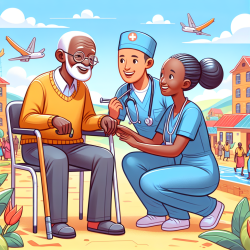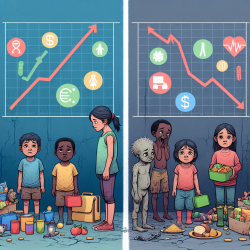In the realm of public health, equity is not just a concept; it is a fundamental right. The research article "'Issues of equity are also issues of rights': Lessons from experiences in Southern Africa" delves into the interplay between human rights and health equity, offering critical insights for practitioners aiming to improve their skills and contribute to social justice. This blog will explore key takeaways from the research and suggest actionable steps for practitioners in online therapy and special education.
Key Findings from the Research
The research conducted by the Network on Equity in Health in Southern Africa (EQUINET) highlights several critical success factors for achieving health equity:
- Comprehensive Rights Approaches: Addressing the full spectrum of civil, political, and socio-economic rights is crucial.
- Community Engagement: Successful human rights approaches involve active community participation, reinforcing community capacity and collective agency.
- Resource Mobilization: Human rights approaches can mobilize resources beyond the health sector and bridge public-private divides.
Actionable Steps for Practitioners
1. Embrace a Comprehensive Rights Approach
As a practitioner, it is essential to recognize that health equity encompasses a broad range of rights. Integrate civil, political, and socio-economic rights into your practice to address the diverse needs of your clients.
2. Foster Community Engagement
Encourage active participation from the communities you serve. This can be achieved through:
- Organizing workshops and training sessions to educate community members about their rights.
- Facilitating platforms for community voices to be heard in policy discussions.
3. Mobilize Resources Across Sectors
Collaborate with organizations and stakeholders beyond the health sector to mobilize resources and support for your clients. This can include partnerships with educational institutions, local governments, and non-profits.
4. Prioritize Vulnerable Groups
Ensure that your interventions prioritize the most vulnerable groups. Tailor your strategies to address the specific needs of marginalized populations, thereby promoting social justice and health equity.
5. Enhance Transparency and Information Access
Provide clear and accessible information to your clients. Transparency is key to empowering individuals and communities, enabling them to make informed decisions about their health and well-being.
Encouraging Further Research
The research from Southern Africa underscores the importance of continuous learning and adaptation. Practitioners are encouraged to engage in further research to stay informed about best practices and emerging trends in health equity and human rights.To read the original research paper, please follow this link:
'Issues of equity are also issues of rights': Lessons from experiences in Southern Africa.










